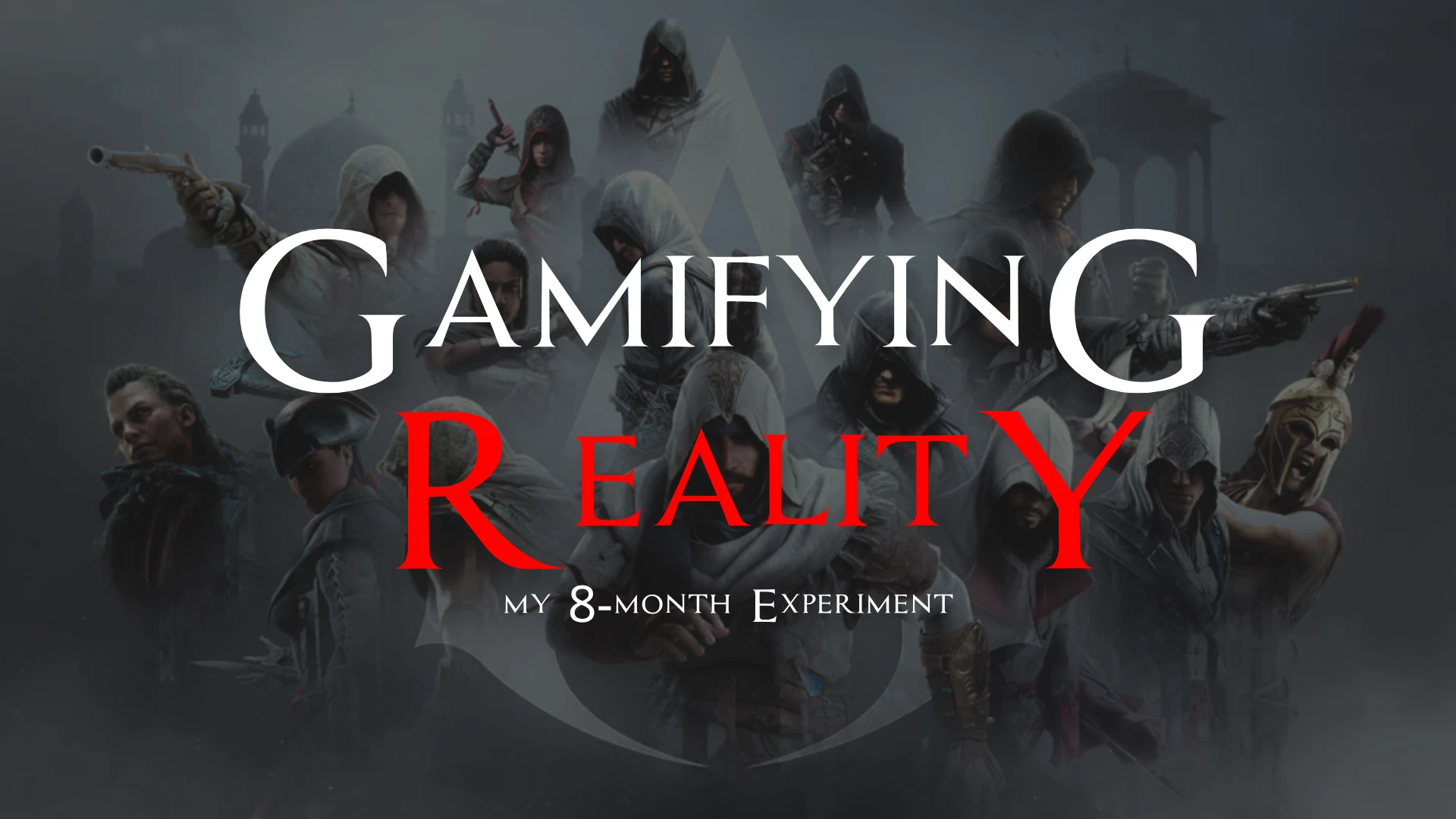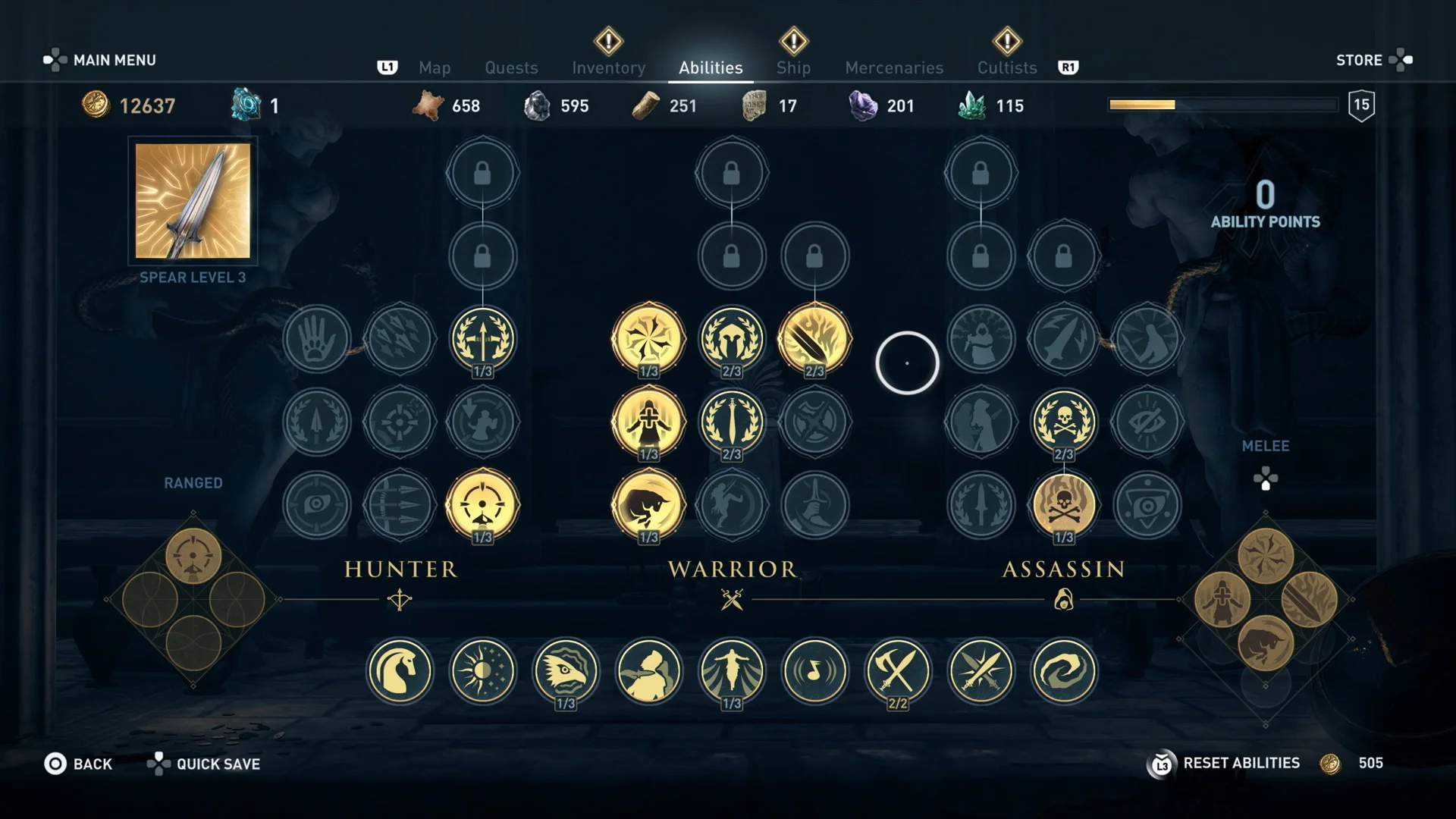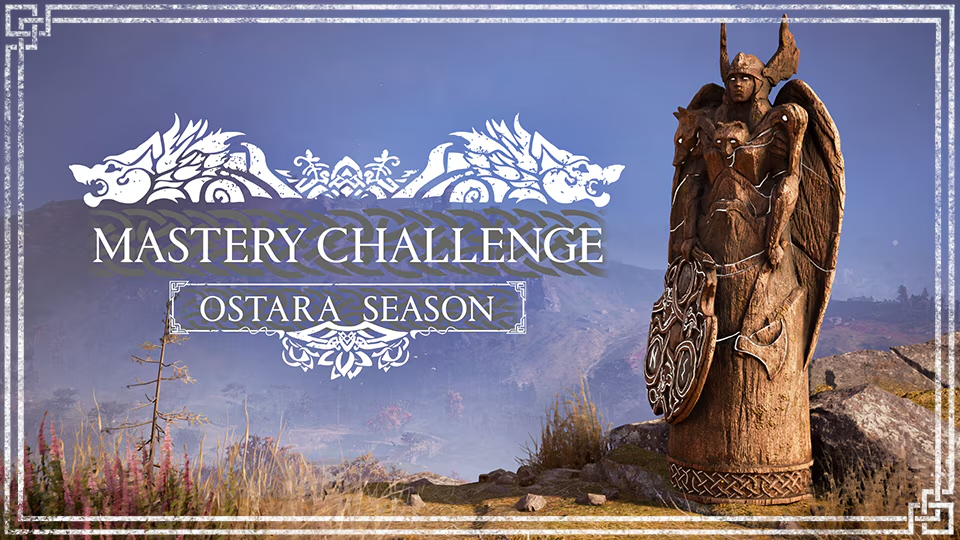Personal Development
Gamifying Reality: My 8-month Experiment

Eisha Janel Alva

Assassin's Creed Franchise | Ubisoft (US)
I've always enjoyed playing games like League, WoW, and Assassin's Creed. Character growth, diverse environments, and difficult challenges make the experience so appealing. For me, it's a beautiful escape from the stresses of everyday life; it allows me to unwind and decompress in ways that nothing else does.
However, as we get older, the amount of time we can devote to these hobbies reduces, while the burden of obligations grows. Life started to feel dull, typical, and uninteresting. That's when I decided to start playing a new game: the game of life. I decided to challenge myself to set goals and overcome obstacles, just like in a video game. I wanted to see how far I could push myself and what kind of achievements I could unlock in my own reality.
Game Plan for the First Two Months
In the early months of this year, I decided to make a New Year's resolution—something I know I can commit to and stick to for a year, as well as try something new. Before I started, I had a few things to keep in mind when playing this game. According to philosopher Bernard Suits, playing a game involves:
"A voluntary attempt to overcome unneeded impediments."
With this philosophy in mind, I laid out the rules and elements of my life game:

Skill Tree (Assassin's Creed: Odyssey) | Assassin's Creed Wiki | Fandom
Game Plan for the First Two Months
Using this gamified method, I noticed major improvements in my lifestyle and routines over the course of three months. My daily thinking and actions changed significantly. For example, if I had a healthy breakfast, I would gain +2 in health. When commuting, I would gain +2 in perception, +3 in social contacts, and +4 in exercise. At school, I might earn +10 in knowledge, +2 in health for lunch, +3 in communication, +2 in knowledge for reviewing notes, and +8 for a good night's sleep. I would tally these points before going to bed and review my current stats before falling asleep.
The tasks become more enjoyable and satisfying. I became entirely absorbed in the task at hand, spending hours studying or working without recognizing the passing of time. I was in the zone, and the sense of accomplishment I felt after accomplishing difficult chores and meeting my goals was really fulfilling. I felt a delight I had never known before—I never believed that studying or working could be so satisfying.

Assassin's Creed® Valhalla: Mastery Challenge
Challenges and reflections from the past few months
In recent months, however, I've noticed that achieving a flow state has become more challenging. The gamified approach may not always be actively in use but instead encourages specific activities that can be measured. I realized this can lead to feelings of constant pressure and competitiveness with myself. This persistent pressure can be exhausting and can detract from the enjoyment of the "game" itself.
Recognizing this, I decided to take a break from the game and concentrate on other aspects of my life, such as being present and unconcerned about the metrics. I sought to achieve a healthier balance in my life so that I could return to the game feeling reinvigorated and ready to take on new challenges.
Conclusion
All things considered, gamifying my life has greatly aided me in setting priorities and determining how to reach them. I became grateful for myself for the little things I considered to be unessential before and I started to value myself and the experiences that I get from the world. Despite the fact that my time doing this was limited, the experiment is far from over; whether you are a speedrunner, grinder, or casual gamer, it is essential to prioritize taking breaks and checking oneself to ensure you are still enjoying the experience.
References
Suits, Bernard (1967). What is a game? Philosophy of Science 34 (2):148-156.
